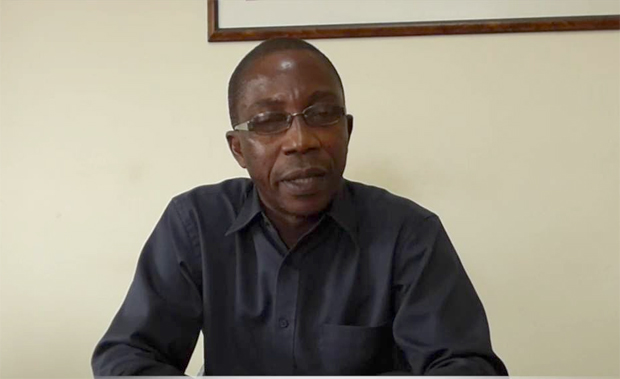Dr Yao Graham
Third World Network, a pan-African research and advocacy organisation based in Accra, Ghana, last week held a media roundtable discussion on the place and role of Artisanal and Small Scale Mining(ASM) in Ghana’s economy and society. It was held at the Coconut Grove Hotel, Accra.
The topic, as depicted, is to look at the relevance or otherwise of ASM to the country’s socio-economic progress taking the issues of gold and salt mining into perspective.
Leading the discussions, the Coordinator of TWN, Dr Yao Graham, stressed that though the government meant good in trying to control the activities of ASM from disturbing the country’s ecology, the modus operandi it has employed is not taking the rights of those involved in the activities they are dealing with into consideration. He cited the formation of the ‘Operation Vanguard’ for instance, a military taskforce which is assigned to stop illegal small scale mining in the country whose activities are considered inimical to the sustenance of the environment where they pitched their tent. Unfortunately, Operation Vanguard’s activities have affected both the legal and illegal miners. The legal miners are those who obtained the necessary documents and received approval to prospect gold in the country and this licence is for only Ghanaian citizens. The work of the Operation Vanguard task force has suffocated the business of the licence holders who are now in suspense, as a general ban, which seems indefinite, has been placed on ‘galamsey’ activities which unfortunately roped in the licence holders putting them in a state of jeopardy.
Dr Graham disclosed that ASM directly employs over 1 million people and creates employment opportunities for over 5 million more in downstream industries and markets so the government needs to re-define its concept of illegal mining or galamsey to clarify the status of the small scale legal miners. He indicated that galamsey produces one-third of the country’s gold earnings.
According to him, the imbalance of allowing only large foreign owned companies to continue to mine the country’s gold, a decision he described as perverse, should be corrected.
He posited that the issue of galamsey is so complex that it requires a short term, mid-term and long term multi-dimensional approach in finding a solution to it.
On the issue of salt mining, discussants were briefed on a protracted conflict between local salt miners at Adina in Ketu South Municipality of the Volta Region and Kensington, a foreign investor. The lagoon which the local people depend on for their livelihood through salt mining activities has been sold to the foreign investor which quickly stopped the people from entering its concession. This spontaneously resulted into an upheaval because the local people felt they have been deprived of their livelihood and their very survival threatened. Later, the company gave the people about 300 meters of the concession which was considered to be woefully inadequate. A documentary on that was shown at the meeting.
The discussants wondered why the local people, especially on the issue of the Adina clash, were not consulted before a decision is taken on the lagoon they have been depending on for subsistence to avoid unwarranted conflicts.
A delegation from Ada in the Greater Accra Region, led by Rev. Sophia Ogerkuor Kitcher also related their resolve to ensure that government works on the master blueprint of PNDCL 287 which will empower the indigenes to have a freehand in mining the salt in the Songhor Lagoon for the socio-economic development of the area and the country at large.
Concluding, Dr Graham suggested that knowledge of the regulations governing mining in the country must be built within civil society and state leading to the building of a constituency for a collective solution to any malady which may crop up.
He said more information on the activities of ASM must be put in the public domain to create awareness adding that the government must put ASM on equal footing with large scale mining companies.
By Michael Avickson


